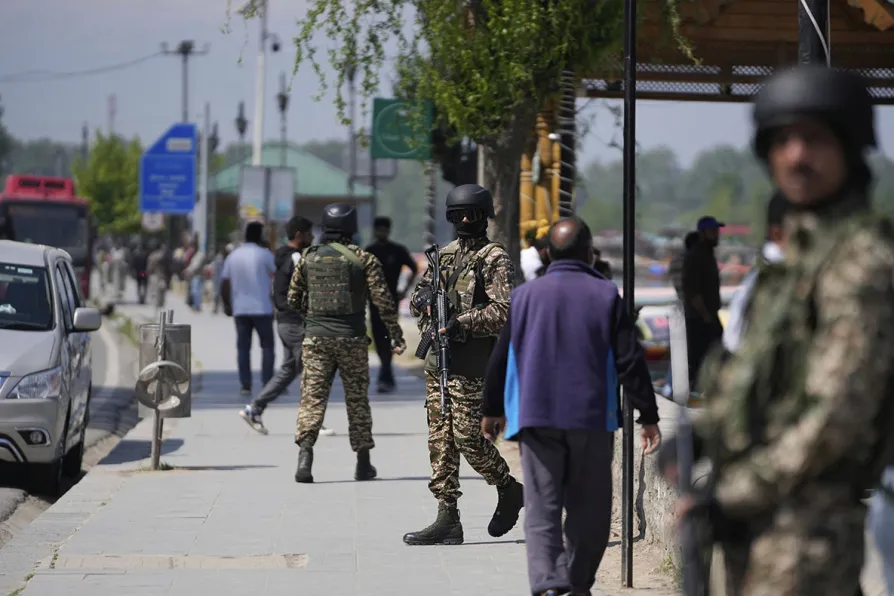
 Indian soldiers on the banks of Dal Lake in Srinagar, Indian controlled Kashmir
Indian soldiers on the banks of Dal Lake in Srinagar, Indian controlled Kashmir
A DEADLY attack on tourists in Indian-controlled Kashmir left India and Pakistan teetering on the brink of war today.
This comes as the nuclear-armed neighbours downgraded diplomatic and trade ties, closed the main border crossing and revoked visas for each other’s nationals.
Pakistan has denied it was behind Tuesday’s attack that killed 26 mostly Indian tourists at a popular scenic spot in the Himalayan region, where India claimed it restored a sense of calm despite a decades-long rebellion.
A previously unknown militant group calling itself Kashmir Resistance has claimed responsibility for the attack.
India and Pakistan have fought two of their three wars over Kashmir, which is split between them and claimed by both in its entirety.
Ties between India and Pakistan have been shaped by conflict, aggressive diplomacy and mutual suspicion, most notably in their competing claims over the stunning Himalayan region of Kashmir.
Armed insurgents in Kashmir have resisted New Delhi for decades, with many Muslim Kashmiris supporting the rebels’ goal of uniting the territory either under Pakistani rule or as an independent country.
India accuses Pakistan of fomenting violence, a charge denied by Islamabad. Tens of thousands of civilians, rebels and government forces have been killed in the conflict over the years.
On Tuesday, gunmen fatally shot 26 tourists, in an attack near the picturesque town of Pahalgam.
New Delhi immediately linked Pakistan to the attack, although it did not publicly produce any evidence.
India announced a string of punitive measures.
It downgraded diplomatic ties, suspended a crucial water-sharing treaty with Islamabad and on Thursday, India’s Foreign Ministry said it had revoked all visas issued to Pakistani nationals.
India also said that it will reduce its staff in its high commission in Pakistan and bring down the number of Pakistani diplomats in New Delhi to 30 from 55 from May 1.
Pakistan called India’s actions “irresponsible” and cancelled visas for Indian nationals, suspended all trade with
India including via third countries and closed its airspace to Indian aircraft.
Pakistan warned on Thursday that any Indian attempt to stop or divert the flow of water between them would be considered an “act of war.”
The 1960 Indus Water Treaty allows for sharing the waters of a river system that is a lifeline for both countries, particularly for Pakistan’s agriculture.
India and Pakistan have built up their armies and nuclear arsenals over the years. India was the first to conduct a nuclear test in 1974, followed by another in 1998. Pakistan followed with its own nuclear tests just a few weeks later.













